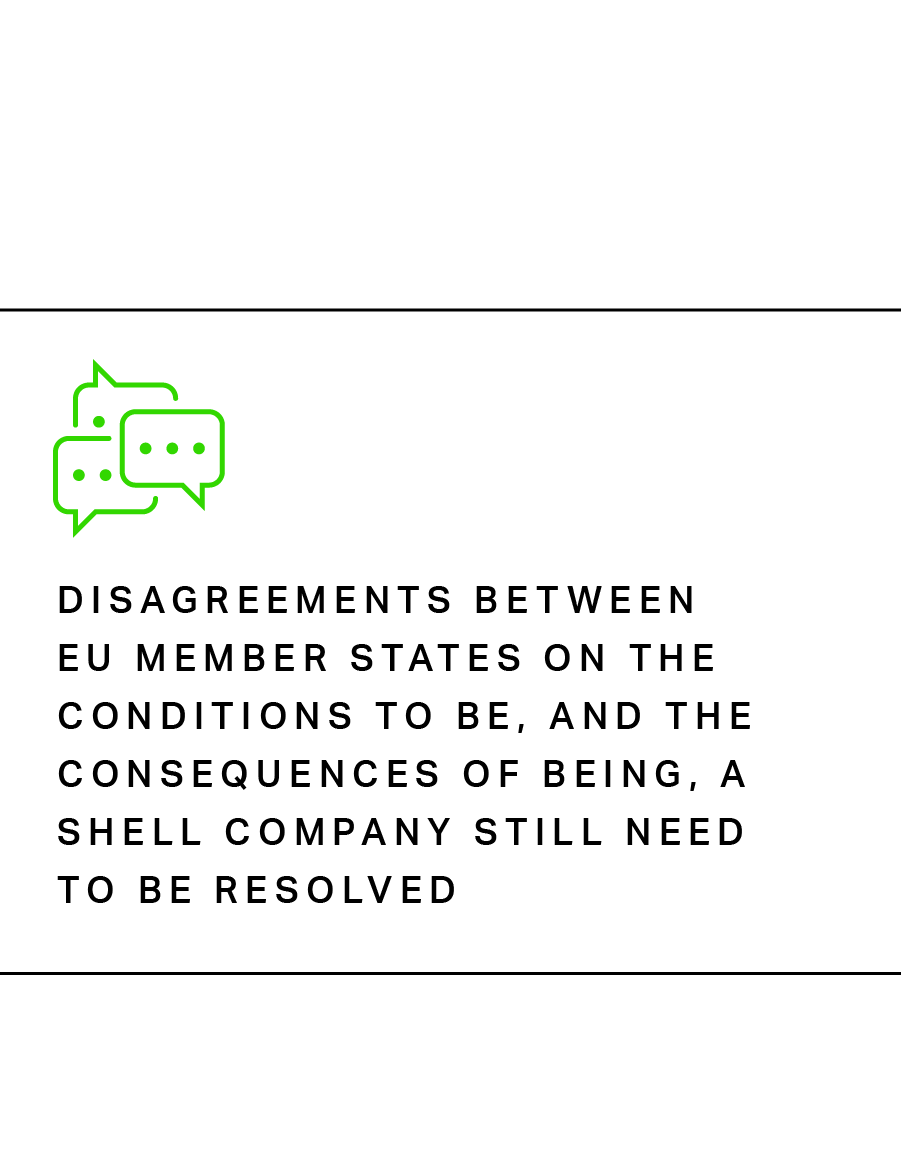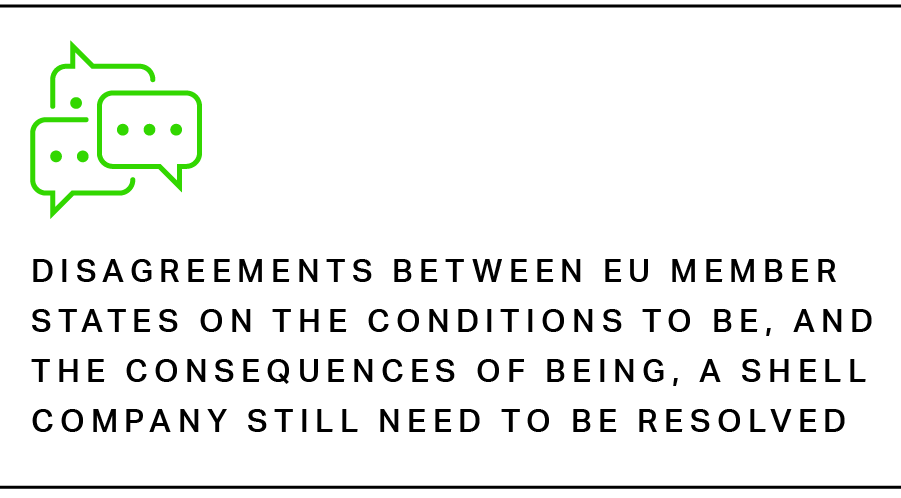The Tax Landscape:
End of Year
Horizon-Scanning

As we approach the final quarter of 2023, a variety of short- to medium-term tax developments lie on the horizon – in the UK, the European Union and globally. We have identified some of what we consider to be the most significant for private equity funds.
Global Developments:
15% Minimum Tax Rate
In October 2021, more than 130 countries reached agreement on a two-pillar solution to reform the international tax framework. The second pillar (“Pillar 2”) aims to ensure a global minimum tax rate of 15% for multinational groups with annual consolidated revenues exceeding €750mn.
One of the main components of Pillar 2 is expected to come into force in a number of countries (including the UK and the EU) from the start of 2024. Broadly speaking, this component introduces a new tax on parents of multinational groups where they have an interest in entities located in a foreign jurisdiction, and the group’s profits arising in that jurisdiction are taxed at below 15%. In some implementing countries (including the UK and the EU), there will also be an accompanying domestic minimum top up tax giving the country where the low-taxed profits arise the right to impose additional tax to increase the effective tax rate in that country.


Global Developments:
15% Minimum Tax Rate
In October 2021, more than 130 countries reached agreement on a two-pillar solution to reform the international tax framework. The second pillar (“Pillar 2”) aims to ensure a global minimum tax rate of 15% for multinational groups with annual consolidated revenues exceeding €750mn.
One of the main components of Pillar 2 is expected to come into force in a number of countries (including the UK and the EU) from the start of 2024. Broadly speaking, this component introduces a new tax on parents of multinational groups where they have an interest in entities located in a foreign jurisdiction, and the group’s profits arising in that jurisdiction are taxed at below 15%. In some implementing countries (including the UK and the EU), there will also be an accompanying domestic minimum top up tax giving the country where the low-taxed profits arise the right to impose additional tax to increase the effective tax rate in that country.


In many cases, a specific exemption will remove private equity funds and their holding companies from a Pillar 2 charge (even if they are parents of consolidated groups with revenues above the €750mn threshold). However, the exemptions are nuanced and not universal, and there is no exemption for portfolio companies and their related groups owned by private equity funds. Funds will accordingly need to test which entities within the house and holding structures, and within portfolio groups, need to be consolidated for purposes of applying the €750mn threshold test. There are some traps for the unwary here, including rules which extend consolidation to certain entities not otherwise consolidated (by reason of their small size, on materiality grounds, or on the grounds that they are “held for sale”).

EU Developments: Substance and Beneficial Ownership
Under a December 2021 proposal, EU member states were in principle required to implement a directive tackling the use of ‘shell’ companies (that is, entities which are lacking in substance and so capable of being misused for tax avoidance or tax evasion purposes), with effect from 1 January 2024. This so-called “unshell directive” could affect companies in countries like Luxembourg seeking to access tax treaty relief and/or benefits under EU tax directives, if they fail to meet tests based on such things as local staffing and premises. The breadth of the proposed directive means that it could potentially affect the kinds of asset holding companies customarily used by private equity funds, notwithstanding the absence of tax avoidance or evasion. The proposal has an exclusion for regulated entities, such as AIFs and AIFMs, but not for offshore holding companies owned by those kinds of regulated entities.
A number of disagreements between EU member states on the conditions to be, and the consequences of being, a shell company still need to be resolved before the directive can be finalized and implementation happen. So, it remains to be seen what the rules will ultimately look like or from when they will apply.

Despite an inevitable delay to the implementation date, funds with EU holding company platforms should remain alert to the upcoming regulation in this area. Funds also should remain alert to the parallel – and potentially more meaningful – approach being taken locally in many EU countries. This is to deny treaty or EU tax directive benefits on first principles, based not only on an existing need for holding companies to have local substance but also to have sufficient “beneficial ownership” of the income, profits and gains in relation to which a relevant relief is being sought. Audit activity in this area is increasing and court judgements are going against taxpayers. The consequences can in some cases have a criminal component. Funds expecting to receive income or to generate gains from European assets should be thinking carefully about their approach to source country taxation.
EU Developments: Substance and Beneficial Ownership
Under a December 2021 proposal, EU member states were in principle required to implement a directive tackling the use of ‘shell’ companies (that is, entities which are lacking in substance and so capable of being misused for tax avoidance or tax evasion purposes), with effect from 1 January 2024. This so-called “unshell directive” could affect companies in countries like Luxembourg seeking to access tax treaty relief and/or benefits under EU tax directives, if they fail to meet tests based on such things as local staffing and premises. The breadth of the proposed directive means that it could potentially affect the kinds of asset holding companies customarily used by private equity funds, notwithstanding the absence of tax avoidance or evasion. The proposal has an exclusion for regulated entities, such as AIFs and AIFMs, but not for offshore holding companies owned by those kinds of regulated entities.

A number of disagreements between EU member states on the conditions to be, and the consequences of being, a shell company still need to be resolved before the directive can be finalized and implementation happen. So, it remains to be seen what the rules will ultimately look like or from when they will apply.

Despite an inevitable delay to the implementation date, funds with EU holding company platforms should remain alert to the upcoming regulation in this area. Funds also should remain alert to the parallel – and potentially more meaningful – approach being taken locally in many EU countries. This is to deny treaty or EU tax directive benefits on first principles, based not only on an existing need for holding companies to have local substance but also to have sufficient “beneficial ownership” of the income, profits and gains in relation to which a relevant relief is being sought. Audit activity in this area is increasing and court judgements are going against taxpayers. The consequences can in some cases have a criminal component. Funds expecting to receive income or to generate gains from European assets should be thinking carefully about their approach to source country taxation.
UK Developments:
Carried Interest
The tax treatment of carried interest in the UK has been thrown into the spotlight this year. There has been an extraordinary public debate on the technical analysis and the way in which carried interest ought to be treated as a matter of UK tax law. Moreover, there has been a threatened legal challenge to the way in which the UK tax authorities have approached the taxation of carried interest, and the UK Labour Party has announced that it would target the taxation of carried interest if it wins the next UK election (which, based on the latest opinion polls, appears to be the most likely outcome).
What exactly the Labour Party has in mind is not clear, but since the next election must be held by January 2025 (and could well happen much sooner than that), the possibility of a medium-term change to the UK tax treatment of carried interest cannot be ruled out.
































